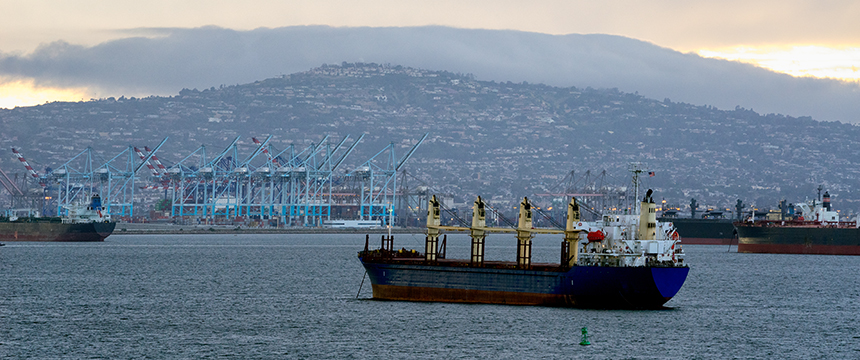
| Increased Tariffs on Imports of Selected Products | Incremento de aranceles a la importación de ciertos productos |
| As an additional measure to those taken last year, the Federal Government again modified the Law of General Import and Export Taxes (Ley de los Impuestos Generales de Importación y Exportación) in order to provide fair conditions to national industry and prevent bad practices in international trade, promoting the development of national industry and supporting the domestic market to balance the situation faced with the global market that has taken place as a consequence of the nearshoring phenomenon. For these purposes, it was established to temporarily increase, for two years starting on April 23, 2024, the tariffs of 554 tariff sections corresponding to: steel, aluminum, textiles, apparel, footwear, wood, plastic and its manufactures, chemical products, paper and cardboard, ceramic products, glass and its manufactures, electrical equipment, transportation equipment, musical instruments, and furniture, among others. The increase in these tariffs is between 5% and 50%. The above is in replacement to the temporary increase in tariffs of 392 tariff sections related to steel, aluminum, bamboo, rubber, chemical products, oils, soap, paper, cardboard, ceramic products, glass, electrical equipment, musical instruments, and furniture, among others, established through amendment of the General Import and Export Tax Law (Ley de los Impuestos Generales de Importación y Exportación) of August 15, 2023, where the increase in these tariffs was between 5% and 25%, depending on the imported products for the period from August 16, 2023 to July 31, 2025. Additionally, the tariffs incentive of the Mexican Sector Promotion Programs (Programas de Promoción Sectorial) applicable to the tariffs sections of several steel products will be maintained for the same period (two years) in order to protect production chains and the competitiveness of the electric, electronic, automotive, and auto parts industrial sectors. The increases in such tariffs does not apply to imports of products originating in countries where Mexico has entered into a Free Trade Agreement as long as the requirements of the treaties are complied with. For further information on how to navigate these tariffs, contact Foley & Lardner Mexico’s foreign trade and tax practice. | Como medida adicional a la tomada el año pasado, el Gobierno Federal modificó nuevamente la Ley de los Impuestos Generales de Importación y Exportación con el fin de otorgar condiciones justas a la industria nacional y evitar las malas prácticas del comercio internacional, fomentando el desarrollo de la industria nacional y apoyando al mercado interno para equilibrar la situación frente al mercado global que han tenido lugar como consecuencias del fenómeno del nearshoring. Por estas razones se estableció incrementar temporalmente, durante dos años a partir del 23 de abril de 2024, los aranceles de 554 fracciones arancelarias respectivas a: acero, aluminio, textiles, confección, calzado, madera, plástico y sus manufacturas, productos químicos, papel y cartón, productos cerámicos, vidrio y sus manufacturas, material eléctrico, material de transporte, instrumentos musicales, muebles, entre otros. El aumento a dichos aranceles es de entre el 5% y el 50%. Lo anterior en sustitución al incremento temporal de las tarifas de 392 fracciones arancelarias relativas a acero, aluminio, bambú, caucho, productos químicos, aceites, jabón, papel, cartón, productos cerámicos, vidrio, material eléctrico, instrumentos musicales y muebles, entre otras establecido mediante la modificación a la Ley de los Impuestos Generales de Importación y Exportación del 15 de agosto de 2023, donde el incremento de estas tarifas arancelarias fue de entre el 5% al 25%, según el tipo de mercancía importada por el periodo comprendido del 16 de agosto de 2023 al 31 de julio de 2025. Por otro lado, se mantendrá por el mismo periodo (dos años) el beneficio arancelario de los Programas de Promoción Sectorial aplicable a las fracciones arancelarias de diversos productos siderúrgicos para proteger las cadenas productivas y la competitividad de los sectores industriales eléctrico, electrónico, automotriz y de autopartes. Se debe considerar que el incremento de aranceles en cuestión no es aplicable a la importación de productos originarios de los países con los que México tenga celebrado un tratado de libre comercio en la medida en que se cumplan los requisitos de dichos tratados. Para conocer más detalles acerca del tratamiento de los presentes aranceles contacta a la práctica de comercio exterior y fiscal de Foley & Lardner México. |
Author(s)
Related Insights
July 25, 2025
Foley Viewpoints
Thorny Laws That ICHRA Vendors Should Consider, Part Three: FinTech Edition
We continue our series on the legal and regulatory challenges facing individual coverage health reimbursement arrangements (ICHRAs); this…
July 24, 2025
Manufacturing Industry Advisor
Foley Automotive Update
Analysis by Julie Dautermann, Competitive Intelligence Analyst Foley is here to help you through all aspects of rethinking your long-term…
July 23, 2025
Foley Viewpoints
The One Big Beautiful Bill and Workplace Immigration Enforcement
The “One Big Beautiful Bill Act,” signed into law by President Trump on July 4, 2025, will fund government efforts to continue to…

